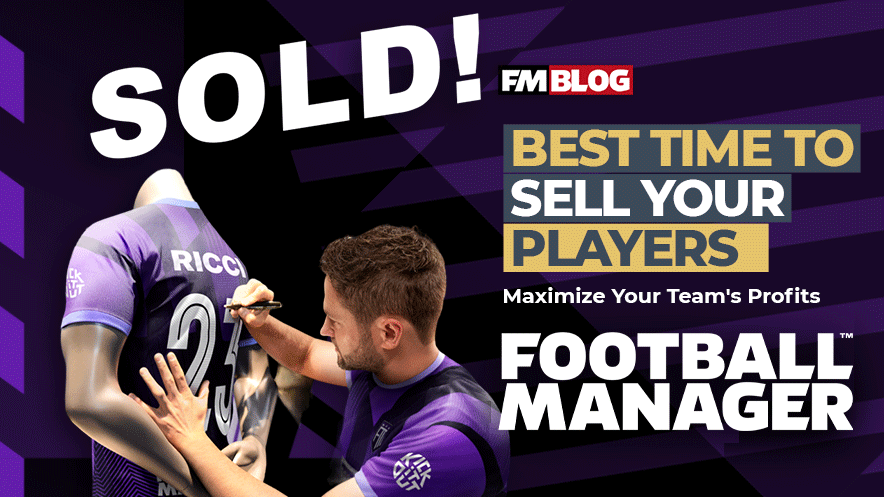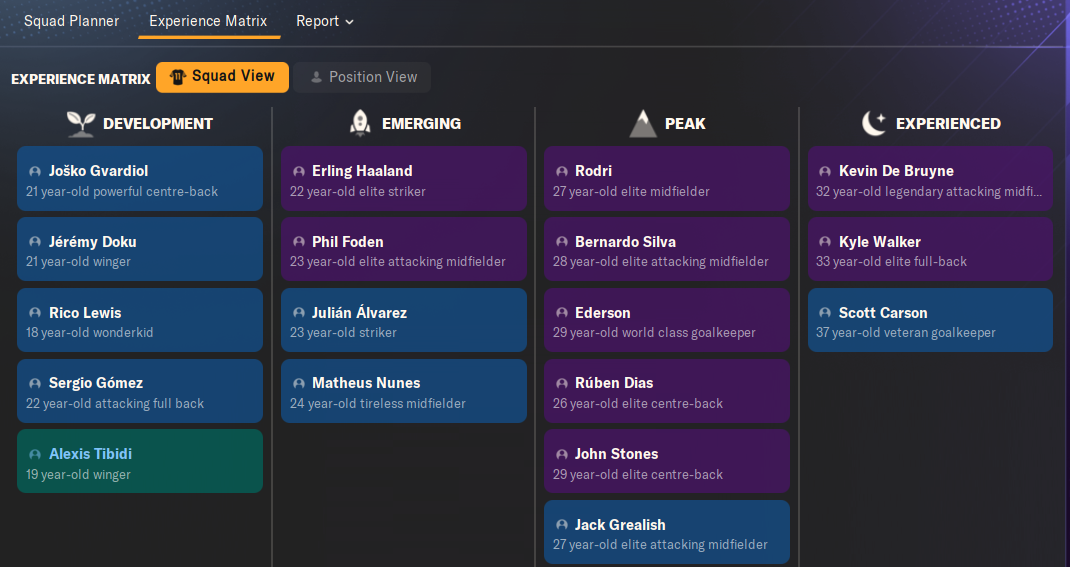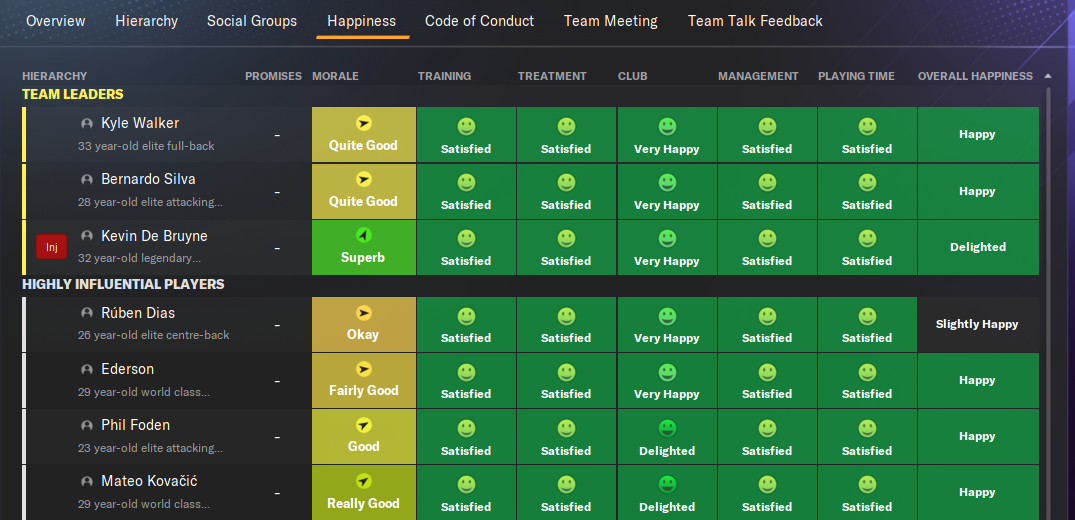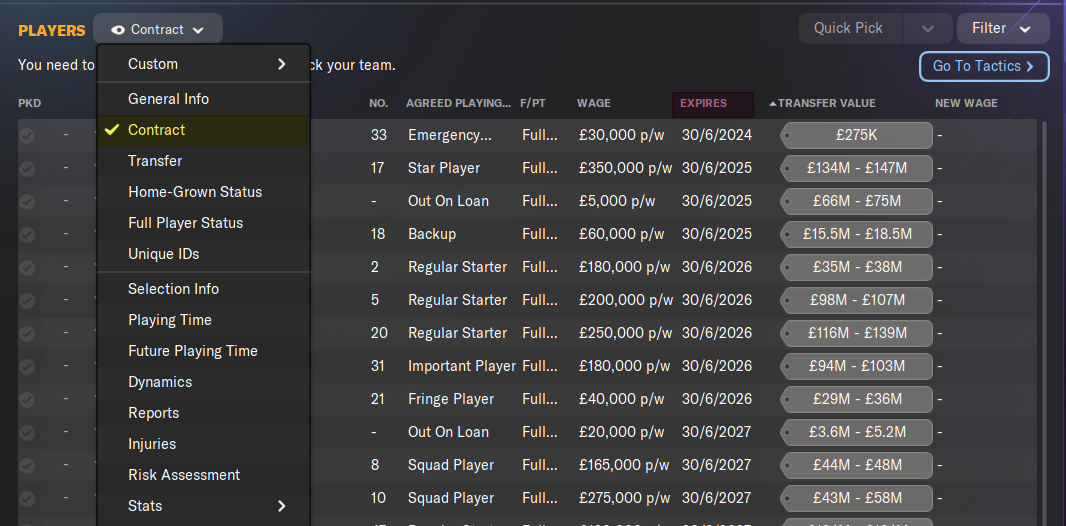Learn when to sell players in Football Manager to boost your team's success and optimize your squad's potential.
A Football Manager Guide to Optimizing Your Squad for Success by Knowing When to Sell
As a Football Manager player, it can be tempting to hold onto your best players for as long as possible. In this business, though, nostalgia kills. There comes a time when it is best to sell them and move on. Knowing when to sell your players can be the difference between a successful season and a mediocre one. In this guide, we will explore the best methods for determining when it is time to sell your players on Football Manager so you can make the most of your team's potential.
Sometimes, a player may not be a good fit for your tactics or system. This can be due to their attributes or playing style. In this case, it may be best to sell them and bring in a player who is a better fit. This will improve your team's overall performance and give you a better chance of success. Don't be afraid to sell a player just because they are popular or have a high value. It's all about what works best for your team.
Finally, selling a player can be a great way to make some extra cash for your club. If a player is in high demand and you receive a good offer, it may be worth considering. This can give you the funds you need to invest in other areas of your team, such as new signings or improved facilities. Of course, you should always consider the player's value to your team and whether their departure will have a negative impact on your performance.
Particularly further down the pyramid, there’s always another player who does the same role for your side but for less money. If you’ve got a player drawing attention, get your scouts out looking for his replacement, and make the move that makes most financial sense for your side. This is particularly handy for an unbalanced side. If you’ve somehow got a winger who deserves to be playing much higher than the rest of your side, it makes sense to sell him and reinvest that fee into multiple players to raise the overall level of your playing staff.
Knowing when to sell your players on Football Manager is a crucial skill for any successful manager. By considering factors such as age, contract renewals, player happiness, tactical fit, and financial gain, you can make informed decisions about when to let go of your best players. Remember, it's all about what works best for your team and maximizing your potential for success. Use these methods to guide your decision-making process and take your team to the top.
1. Age and Declining Attributes
One of the most obvious reasons to sell a player is when they are past their prime. As players age, their attributes will begin to decline, and they will no longer be able to perform at their best. You can see this in their stats, as their physical attributes, such as pace, acceleration, and stamina, start to decrease. When a player's attributes begin to decline, it's a good idea to sell them while they still have some value. This will allow you to maximize your profits and bring in a younger player with more potential.
While ages of primes differ between different positions, as a general rule of thumb, players begin to deteriorate in their early 30s. Once a player reaches around 31 or 32, keep your eye on their attributes for declines.
While ages of primes differ between different positions, as a general rule of thumb, players begin to deteriorate in their early 30s. Once a player reaches around 31 or 32, keep your eye on their attributes for declines.
2. Tactical Fit
Sometimes, a player may not be a good fit for your tactics or system. This can be due to their attributes or playing style. In this case, it may be best to sell them and bring in a player who is a better fit. This will improve your team's overall performance and give you a better chance of success. Don't be afraid to sell a player just because they are popular or have a high value. It's all about what works best for your team.
3. Unhappy Players
If a player is unhappy at your club, it can be a sign that it's time to sell them. When a player is unhappy, their morale will decrease, which can affect the entire team. It's best to get rid of unhappy players as soon as possible, even if they are a star player. You don't want to risk damaging team morale and jeopardizing your chances of success. Plus, you may be able to sell the player for a higher price if they are in demand.
This is particularly true if you’ve broken a promise to a player. You may think it was unfair of your 20-year-old midfielder to demand more playing time, especially when your star players in his position are already performing, but if you’ve promised an increase, he’ll expect to see it. Breaking promises is a guaranteed way to ruin a player’s morale; but it will also encourage him to seek a transfer partner, making it easier for you to unload him.
This is particularly true if you’ve broken a promise to a player. You may think it was unfair of your 20-year-old midfielder to demand more playing time, especially when your star players in his position are already performing, but if you’ve promised an increase, he’ll expect to see it. Breaking promises is a guaranteed way to ruin a player’s morale; but it will also encourage him to seek a transfer partner, making it easier for you to unload him.
4. Contract Renewals
Another factor to consider when deciding to sell a player is their contract situation. If a player is approaching the end of their contract and you cannot afford to renew it, it may be time to sell them. Otherwise, you risk losing them for free when their contract expires. Even if you can afford to renew their contract, you should consider whether it's worth it.
If the player is past their prime or declining, it may be better to let them go and bring in a younger, more promising player. This can be an excellent way to save money, as older players with higher reputations believe they can demand higher salaries and increased playing time. So keep your eye on this, as you’ll need to make sure you’re spending your budgets wisely.
5. Financial Gain
Finally, selling a player can be a great way to make some extra cash for your club. If a player is in high demand and you receive a good offer, it may be worth considering. This can give you the funds you need to invest in other areas of your team, such as new signings or improved facilities. Of course, you should always consider the player's value to your team and whether their departure will have a negative impact on your performance.
Particularly further down the pyramid, there’s always another player who does the same role for your side but for less money. If you’ve got a player drawing attention, get your scouts out looking for his replacement, and make the move that makes most financial sense for your side. This is particularly handy for an unbalanced side. If you’ve somehow got a winger who deserves to be playing much higher than the rest of your side, it makes sense to sell him and reinvest that fee into multiple players to raise the overall level of your playing staff.
Knowing when to sell your players on Football Manager is a crucial skill for any successful manager. By considering factors such as age, contract renewals, player happiness, tactical fit, and financial gain, you can make informed decisions about when to let go of your best players. Remember, it's all about what works best for your team and maximizing your potential for success. Use these methods to guide your decision-making process and take your team to the top.


















